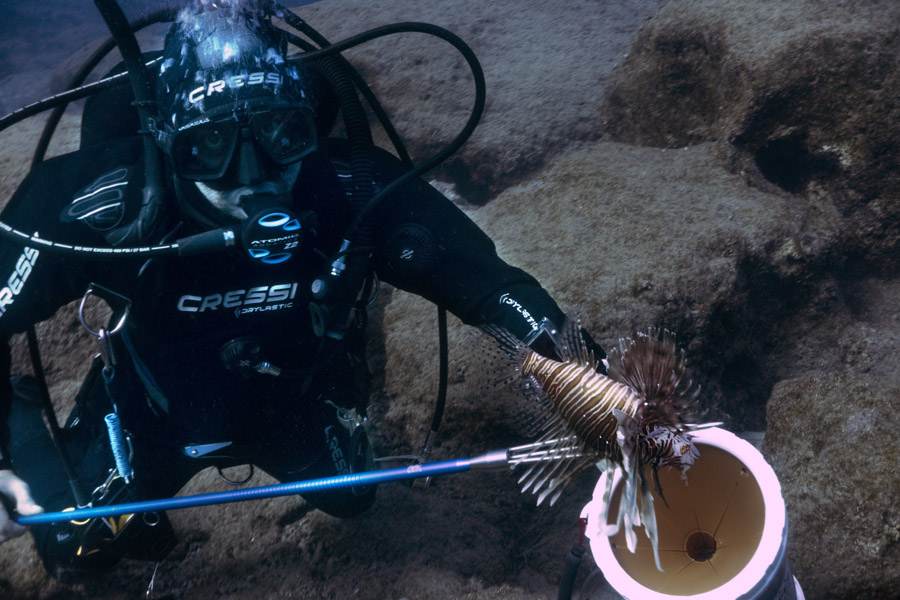Cyprus on front line against fish invasion


KONNOS BAY, Cyprus - Equipped with harpoons and waterproof notebooks, Louis, Carlos and Antonis dive deep into the crystal clear waters of Konnos Bay on a mission to capture predatory lionfish.
After colonizing parts of the Atlantic on the east coast of the United States and the Caribbean, lionfish are now invading the Mediterranean.
After two dives, the marine biologists from the Enalia Physis Environmental Research Center surface with nearly 20 brown-and-white striped specimens.
Armed with venomous dorsal spines and fan-shaped pectoral fins, the exotic looking lionfish, a favorite at aquariums, has no known enemies in the Mediterranean.
The reef fish, whose sting is painful but not deadly, is native to the Indian Ocean.
But an outbreak in the Mediterranean has scientists, fishermen and divers so worried that they have launched a campaign to reduce its numbers.
The lionfish first appeared in the waters off Cyprus in 2012, said Louis Hadjioannou, research director at Enalia.
"Since then it has spread everywhere," he said. "All over the island, almost wherever you dive you can now see the lionfish in masses."
The same is true in Lebanon where Alain Najem, who runs a diving club north of Beirut, said he sees greater numbers with each trip to the sea.
The lionfish has also been sighted off the coasts of Greece, Turkey and Tunisia.
"The invasion is under way" in the eastern Mediterranean, said Demetris Kletou, director of the Cyprus-based Marine and Environmental Research Lab.
The lionfish's "exponential rise" in the area was facilitated by the widening of the Suez Canal - completed in 2014 - and warming regional water temperatures, according to Jason Hall-Spencer, a marine biology professor at Britain's University of Plymouth.
The cooler waters of the western Mediterranean, he said, have largely been spared for the moment.



































